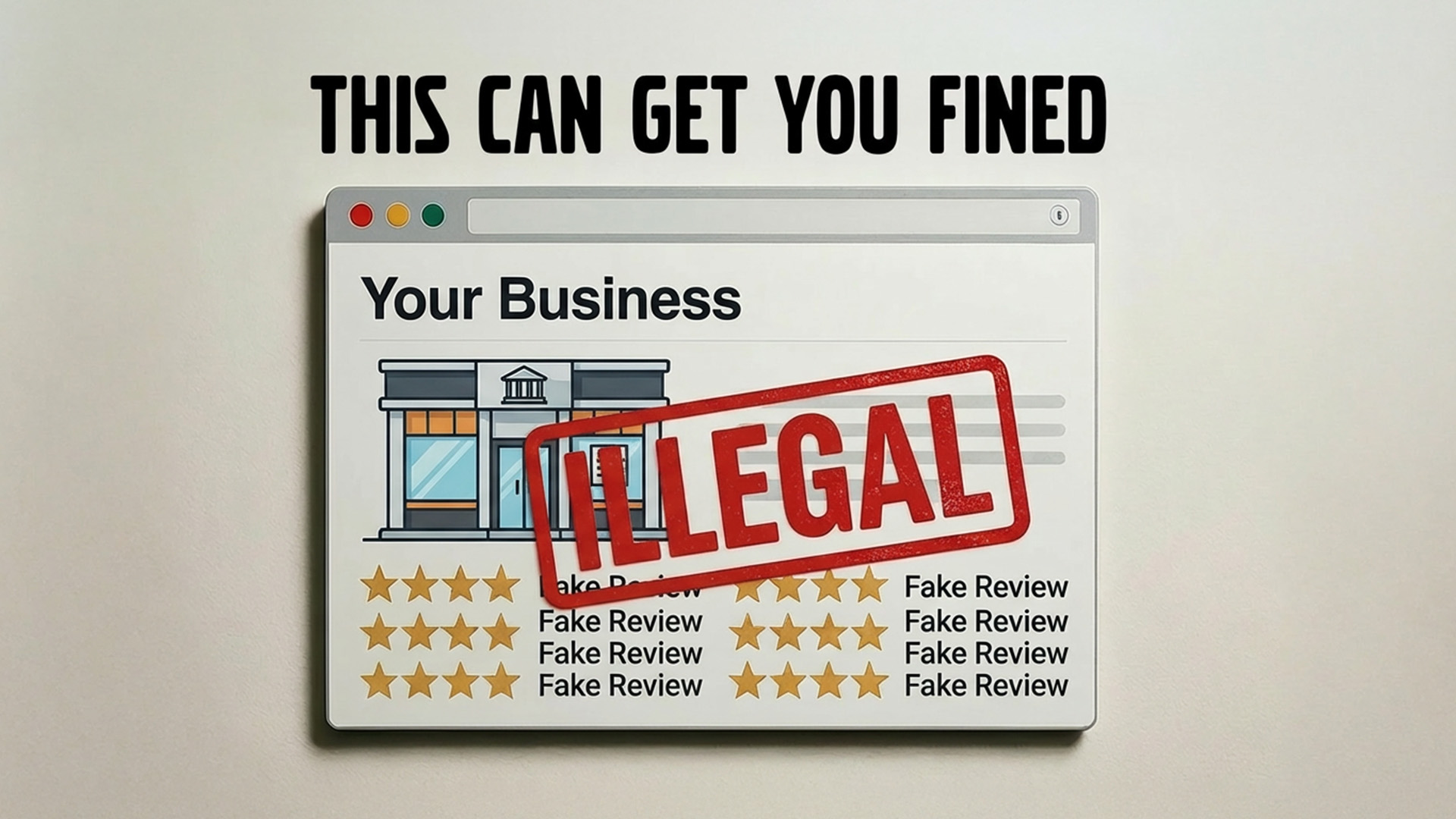A customer asks ChatGPT for “the best auto dealership near me” or “most trusted credit union in Dallas,” and your business doesn’t make the list. Here’s why traditional marketing isn’t enough anymore.

Sarah pulled into the parking lot of her family dentist, frustrated and confused. She’d been a patient there for three years and loved the Doctor’s care. But when she asked ChatGPT for “best dentist for root canal near me,” Her doctor wasn’t even mentioned. Instead, AI recommended three other practices—including one she’d never heard of.
The Invisible Business Problem
If you’re a business owner in automotive, banking, medical, or any trust-based industry, here’s the uncomfortable truth: your traditional marketing efforts might be making you invisible in the age of AI.

Consider these real scenarios happening right now:
Automotive: “I need a reliable dealership for a used Honda Civic under $25k” → AI recommends three dealerships. Yours isn’t one of them, despite having the largest Honda inventory in town.
Banking: “What’s the best credit union for first-time homebuyers in Phoenix?” → AI suggests four options. Your credit union, which has the best first-time buyer program, doesn’t appear.
Medical: “I need a pediatric dentist who’s great with anxious kids” → AI recommends practices based on online sentiment about patient care. Your excellent bedside manner goes unnoticed.
The problem isn’t your service quality. It’s that AI agents don’t evaluate businesses the way Google does.
How AI Actually Chooses Winners
Unlike Google’s algorithm, which weighs factors like keywords, backlinks, and website optimization, AI agents make recommendations based on what feels most like human reasoning:
1. Trust Signal Sophistication
AI doesn’t just count star ratings—it reads and understands the content of reviews. A dealership with 4.2 stars but detailed reviews about “transparent pricing” and “no pressure sales tactics” will beat a 4.8-star competitor whose reviews say generic things like “great service.”
2. Contextual Relevance
When someone asks for a “family-friendly credit union,” AI looks for specific language in reviews and website content about family services, not just high ratings. It’s looking for evidence that matches the user’s actual needs.
3. Community Consensus
AI weighs consistent themes across multiple review platforms. If patients consistently mention that Dr. Smith “explains procedures clearly” across Google, Healthgrades, and Yelp, AI treats this as strong evidence of communication skills.
4. Recency and Momentum
AI favors businesses with recent, consistent positive feedback over those with older reviews, even if the older reviews are more numerous. A dealership with 20 detailed reviews from the past six months often beats one with 200 reviews from 2-3 years ago.
Case Study: The Medical Practice That Cracked the Code
A family practice in suburban Atlanta was struggling with AI recommendations despite having excellent patient outcomes and a loyal following. Here’s what changed:
Before: 147 Google reviews, 4.6-star average, but mostly brief comments like “Great doctor” and “Friendly staff.”
The Problem: When potential patients asked AI about “thorough family doctors who take time with patients,” the practice wasn’t mentioned.
The Solution: Over 90 days, they implemented a systematic approach to capturing patient experience details:
- Post-appointment micro-surveys asking specific questions about communication and care quality
- Private feedback loops to address concerns before they became public
- Authentic testimonials that highlighted specific strengths

The Result: Within three months, the practice began appearing in AI recommendations for family doctors. New patient appointments increased by 34%.
What Made the Difference: The new reviews contained specific language AI could understand—”took 20 minutes to answer all my questions,” “explained my lab results in terms I could understand,” “never felt rushed.”
What Your Industry Needs to Know
Auto Dealerships
AI pays attention to: pricing transparency, sales process experience, service department quality, and follow-up care. Generic “great experience” reviews don’t help. Detailed accounts of the buying process do.
Banks and Credit Unions
AI looks for: community involvement, loan process experiences, customer service responsiveness, and financial education support. “Helpful staff” means nothing. “Walked me through every step of my first mortgage” means everything.
Medical Practices
AI evaluates: bedside manner, communication skills, office efficiency, and treatment outcomes. “Nice doctor” gets ignored. “Diagnosed my condition after three other doctors missed it” gets attention.
The Traditional Marketing Trap
Many business owners are doubling down on strategies that made sense in the Google era but fall flat with AI:
- SEO optimization without trust signal development
- Paid advertising that drives traffic but doesn’t build reputation
- Website updates that don’t address what AI actually reads
- Social media posting without connecting to review generation
These aren’t wrong, but they’re incomplete. AI judges businesses primarily on community sentiment and authentic customer experience, not marketing messages.

The Five-Point AI Readiness Assessment
Ask yourself these questions:
1. Recent Reviews: Do you have detailed, specific reviews from the past 6 months that mention your key strengths?
2. Cross-Platform Presence: Are you generating authentic reviews across multiple relevant platforms (Google, Facebook, industry-specific sites)?
3. Specific Language: Do your reviews contain the specific terms potential customers use when asking AI for recommendations?
4. Response to Feedback: Do you have a system for capturing and responding to customer feedback before it becomes public?
5. Authentic Volume: Are you generating a steady flow of genuine reviews without appearing artificial or manipulated?
If you answered “no” to more than two questions, you’re likely invisible to AI agents—and losing customers you don’t even know about.
What’s at Stake?
The businesses that figure this out first will gain a massive competitive advantage. Those that wait will find themselves increasingly invisible in a world where AI makes more decisions every day.
A local credit union president told me recently, “I thought our reputation was solid because we had loyal members. But when AI doesn’t recommend us to new people looking for banking services, our growth stops. Period.”
The good news? This shift is still new enough that early movers can dominate their local markets quickly.
Your Next Step
The era of hoping for good reviews is over. The successful businesses of tomorrow will systematically engineer positive customer experiences and capture them in ways AI can understand and recommend.
Don’t wait for your competition to figure this out first.
Ready to discover how AI sees your business? Get our AI Readiness Assessment and find out if your reputation strategy is ready for the future of customer discovery.
Reviews UP helps automotive dealerships, banks, credit unions, and medical practices build AI-recommended reputations through systematic customer experience acquisition. Learn more about our approach at:

